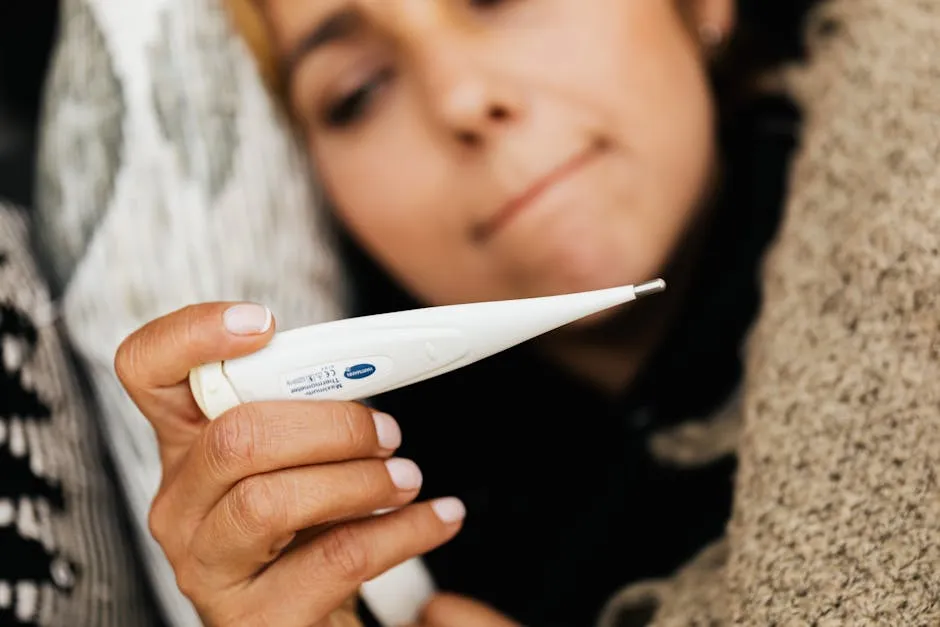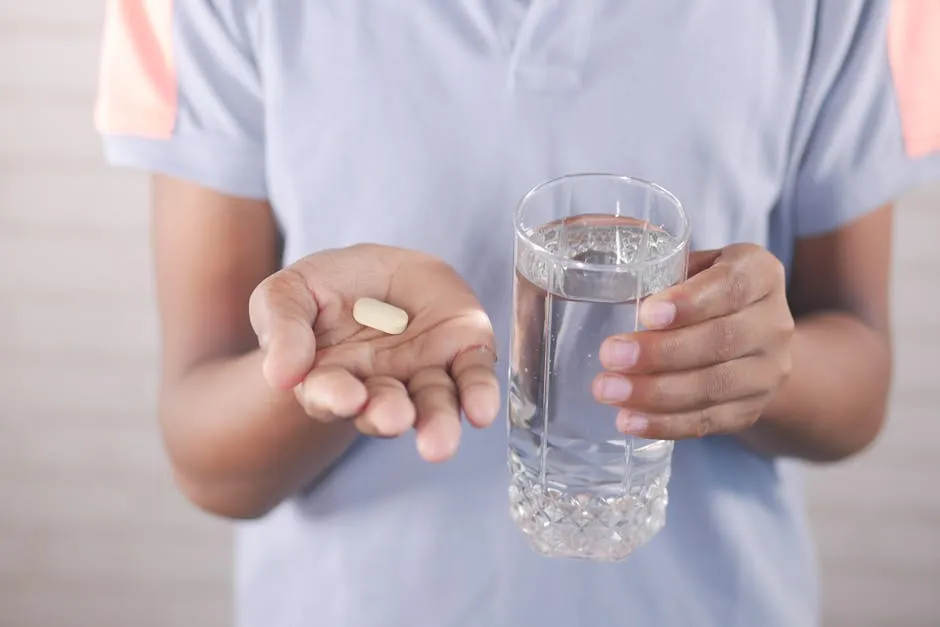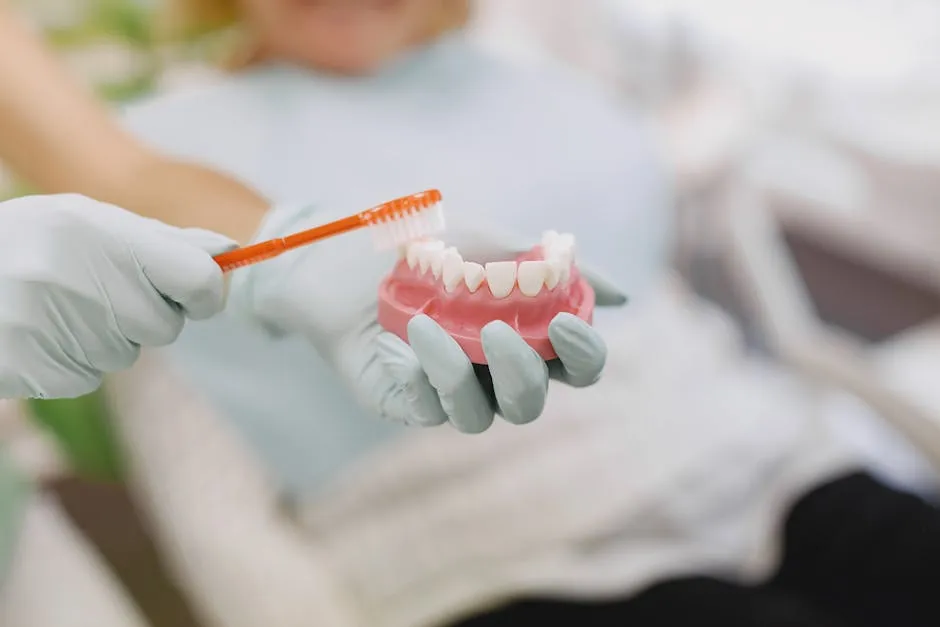
Why Do My Teeth Hurt When I’m Sick? Understanding the Connection
Introduction
Have you ever noticed tooth pain while battling an illness? You’re not alone. Many people experience this discomfort during sickness. Our overall health has a significant impact on our dental health. This article will look into the reasons behind tooth pain when you’re sick, along with remedies and preventive measures.
Speaking of oral health, using a quality toothbrush can make a world of difference! Consider the Oral-B Pro 1000 Electric Toothbrush. It provides superior cleaning with its 3D cleaning action, ensuring your teeth are in tip-top shape even when you’re feeling under the weather!
Summary and Overview
Tooth pain during illness is often linked to several factors. Sinus infections, for example, can create pressure that leads to dental discomfort. Dehydration from fever or lack of fluids can cause dry mouth, increasing tooth sensitivity. Common symptoms include aching teeth, sensitivity, and swelling. Despite feeling unwell, maintaining good oral hygiene is essential to prevent further issues.

We’ll explore how sinus pressure affects upper teeth, the impact of dehydration, and the importance of keeping your mouth clean, even when you’re feeling sick. Understanding these connections can help you manage discomfort and protect your oral health. And don’t forget to stock up on Colgate Total Whitening Toothpaste. It fights cavities and whitens your teeth, making it a perfect partner for your toothbrush!
Understanding the Connection Between Illness and Dental Pain
Why Do Teeth Hurt When Sick?
When you’re unwell, several physiological changes can lead to tooth pain. One of the most common culprits is sinus pressure. Your sinuses are located just above your upper teeth. When they become inflamed due to illness, this pressure can push down on the nerves of your teeth, resulting in discomfort.
Many people don’t realize the nerve connections between the sinuses and teeth. This means that when your sinuses are inflamed, the pain can feel like a toothache. Furthermore, dehydration is a significant factor. When you’re sick, especially with fever, your body loses fluids. This can lead to dry mouth, which reduces saliva production. Saliva is crucial for washing away bacteria and neutralizing acids, making your teeth more vulnerable to decay.
Research shows that around 50% of individuals with sinus infections also report tooth pain. This highlights how common and interconnected these issues can be. The inflammation from the immune response can also increase sensitivity in the teeth, adding to the discomfort. Recognizing these factors can empower you to take preventive measures and seek appropriate relief when needed.

Common Causes of Tooth Pain During Illness
Sinus Infections
When you’re sick, sinus infections often lead to tooth pain. The maxillary sinuses, located just above your upper teeth, can become inflamed. This inflammation creates pressure that pushes down on the roots of these teeth. As a result, you might experience discomfort that feels like a toothache.
Common symptoms of sinus infections include headaches, nasal congestion, and facial pressure. You may also notice a runny nose or thick mucus. These symptoms can intensify the aching in your upper teeth. It’s interesting to note that sinusitis is quite common, especially during cold seasons. Studies show that around 50% of people suffering from a cold may develop sinusitis. Understanding this connection can help you manage your discomfort and seek appropriate treatment.

Dehydration and Dry Mouth
Dehydration is another factor that can cause tooth pain while you’re ill. When you’re sick, especially with a fever, your body loses fluids quickly. This loss can lead to dry mouth, reducing saliva production. Saliva plays a critical role in oral health. It washes away food particles and neutralizes acids that can harm your teeth.
Common situations leading to dry mouth include mouth breathing due to nasal congestion and certain medications. Both can dry out your mouth, leaving your teeth more vulnerable to decay and sensitivity. Research indicates that sick individuals often experience hydration levels well below what’s necessary for optimal health. Staying hydrated can help alleviate these symptoms and protect your teeth during illness.

Effect of Medications
When you’re feeling unwell, medications can sometimes cause tooth discomfort. Many common over-the-counter drugs, like antihistamines and decongestants, may lead to dry mouth. This happens because they can reduce saliva production, which is essential for maintaining oral health. A dry mouth increases the risk of cavities and gum disease, making your teeth more sensitive and prone to pain.
It’s crucial to discuss any side effects with your healthcare provider. They can help you find alternatives that might not cause dry mouth. A study found that about 30% of people using certain medications report experiencing dry mouth as a side effect. This highlights the importance of being aware of how medications can affect your oral health.
If you’re taking pain relief medications for your illness, be mindful of their potential side effects as well. They can also impact your mouth’s moisture levels. Keeping hydrated and speaking to your doctor can help manage these issues effectively. And when it comes to pain relief, you can rely on Tylenol Extra Strength Acetaminophen to ease your discomfort.

Managing and Alleviating Tooth Pain When Sick
Home Remedies and Over-the-Counter Solutions
Dealing with tooth pain while sick can be a challenge, but there are effective home remedies and over-the-counter solutions to ease your discomfort. Staying hydrated is essential; drink plenty of water to combat dryness and promote saliva production. A warm compress on your face can also reduce sinus pressure that may be causing tooth discomfort.

Saline rinses can help soothe your mouth and gums, providing relief from inflammation. Mix half a teaspoon of salt with warm water and swish it around your mouth. This simple remedy can help wash away bacteria and lessen pain. If you’re looking for an effective oral rinse, consider trying TheraBreath Fresh Breath Oral Rinse. It fights bad breath while providing soothing relief!
Over-the-counter pain relievers like ibuprofen or acetaminophen can also be effective. They help reduce inflammation and provide temporary relief from tooth pain. Research shows that these medications can be highly effective in managing mild to moderate pain, allowing you to focus on recovery. Always follow the recommended dosage and consult a healthcare provider if pain persists.

Taking these steps can help you find relief while you recover from illness.
Importance of Maintaining Oral Hygiene
When you’re feeling sick, taking care of your teeth may slip your mind. However, maintaining good oral hygiene is crucial, even during illness. Neglecting your dental care can lead to more problems down the line.
Using a Soft Bristle Toothbrush is a wise choice when you’re unwell. It helps prevent irritation to sensitive gums and teeth. Brush gently in circular motions for about two minutes. This ensures you’re cleaning effectively without causing discomfort.

Fluoride toothpaste is another essential. It strengthens tooth enamel and helps fight cavities. When you’re sick, your immune system can weaken, making your teeth more vulnerable to decay. Studies show that good oral hygiene practices can significantly reduce the risk of systemic infections. In fact, people who maintain their oral health have a lower chance of complications during illnesses.
Don’t forget to floss daily. It removes food particles and plaque from between your teeth, areas where your toothbrush may not reach. Staying committed to your oral hygiene routine will help you recover faster and keep your mouth healthier. Also, consider using Oral-B Glide Pro-Health Dental Floss to keep your gum health in check!

When to Consult a Dentist
Signs You Should Seek Professional Help
Tooth pain during illness can be concerning. However, there are specific signs that indicate when it’s time to consult a dentist. If you experience persistent pain after your illness, it’s essential to get evaluated. This could indicate underlying dental issues that need attention.
Accompanying symptoms are also critical. If you notice fever, swelling, or pain that radiates to your jaw or ear, don’t wait. These could be signs of an infection that requires immediate care.
Statistics show that many people neglect dental visits during illness, yet about 20% report persistent pain after recovering. Ignoring these symptoms can lead to more severe issues down the line.

If your tooth pain is severe or worsens over time, it’s time to seek professional help. Your dentist can assess the situation, provide a diagnosis, and recommend appropriate treatment. Taking these steps ensures you maintain your oral health, even when you’re feeling under the weather.
Conclusion
In summary, tooth pain during illness often stems from sinus pressure, dehydration, and medication effects. Understanding these connections is essential for managing discomfort. Sinus infections can cause pressure in the upper teeth, while dehydration reduces saliva and increases sensitivity. It’s vital to maintain oral health practices, even when unwell. Brushing, flossing, and staying hydrated can help prevent further issues. If tooth pain persists or worsens, don’t hesitate to consult a dentist. Taking care of your dental health is crucial, as it plays a significant role in your overall well-being.
Understanding why dental pain can be worse at night can provide further insights into managing discomfort during illness.
Why do my teeth hurt when I’m sick?
When you’re sick, sinus pressure can affect the upper teeth. This pressure results in discomfort, often mimicking a toothache. The nerves in your sinuses and teeth are closely connected, so inflammation can lead to pain in your teeth.
Can dehydration cause tooth pain?
Yes, dehydration can lead to dry mouth, which increases tooth sensitivity. When saliva production decreases, your teeth become more vulnerable to decay, leading to discomfort.
When should I see a dentist for tooth pain during illness?
If tooth pain persists for more than a couple of days after your illness, it’s time to see a dentist. Additionally, seek help if you experience severe pain, swelling, or fever alongside the toothache.
What are some home remedies for tooth pain when I’m sick?
Stay hydrated and use warm saltwater rinses to soothe your mouth. Over-the-counter pain relievers can also provide relief. A warm compress on your face may help reduce sinus pressure too.
How can I prevent tooth pain when I’m sick?
To prevent tooth pain, maintain good oral hygiene by brushing and flossing regularly. Stay hydrated to combat dry mouth, and avoid sugary or acidic foods that can worsen sensitivity.
Please let us know what you think about our content by leaving a comment down below!
Thank you for reading till here 🙂
All images from Pexels




